Voices from Frick and Thereabouts
When not actively working, the Department’s faculty, staff, and students – some far flung, others just down the street – are using their downtime in seclusion productively. They are starting their spring cleaning, walking with dogs, indulging in experimental cooking, playing board games, watching old movies, ordering textbooks, finishing James Joyce’s Ulysses, and reaching out to distant friends. In the spirit of connecting remote colleagues, below are some comments on how the chemistry community is doing, feeling, and coping during these trying times.
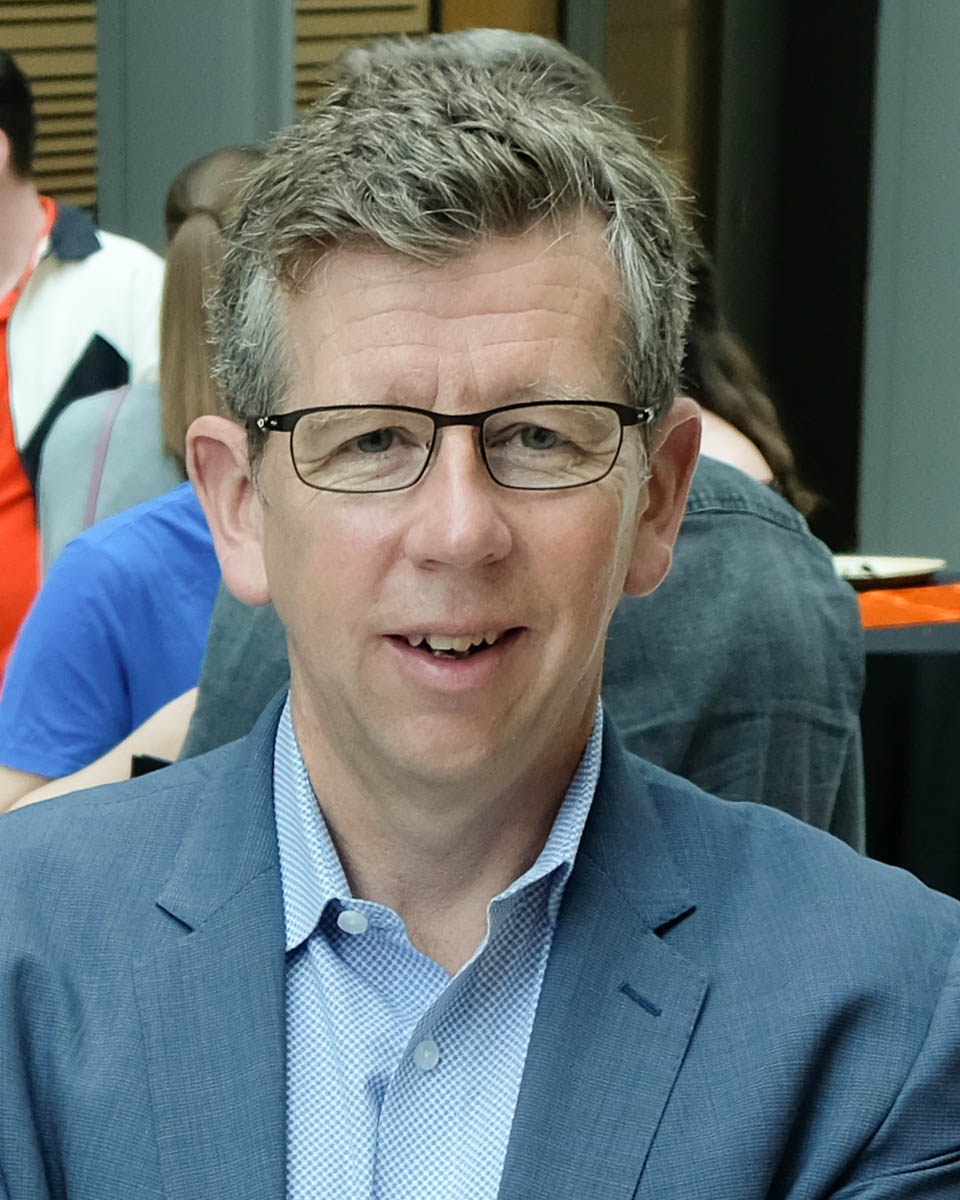
TOM MUIR: (The Van Zandt Williams Jr. Class of 1965 Professor of Chemistry and Chair of Chemistry)
I find that I spend a lot of my time talking to my dog, which is somewhat alarming since I don’t own a dog.
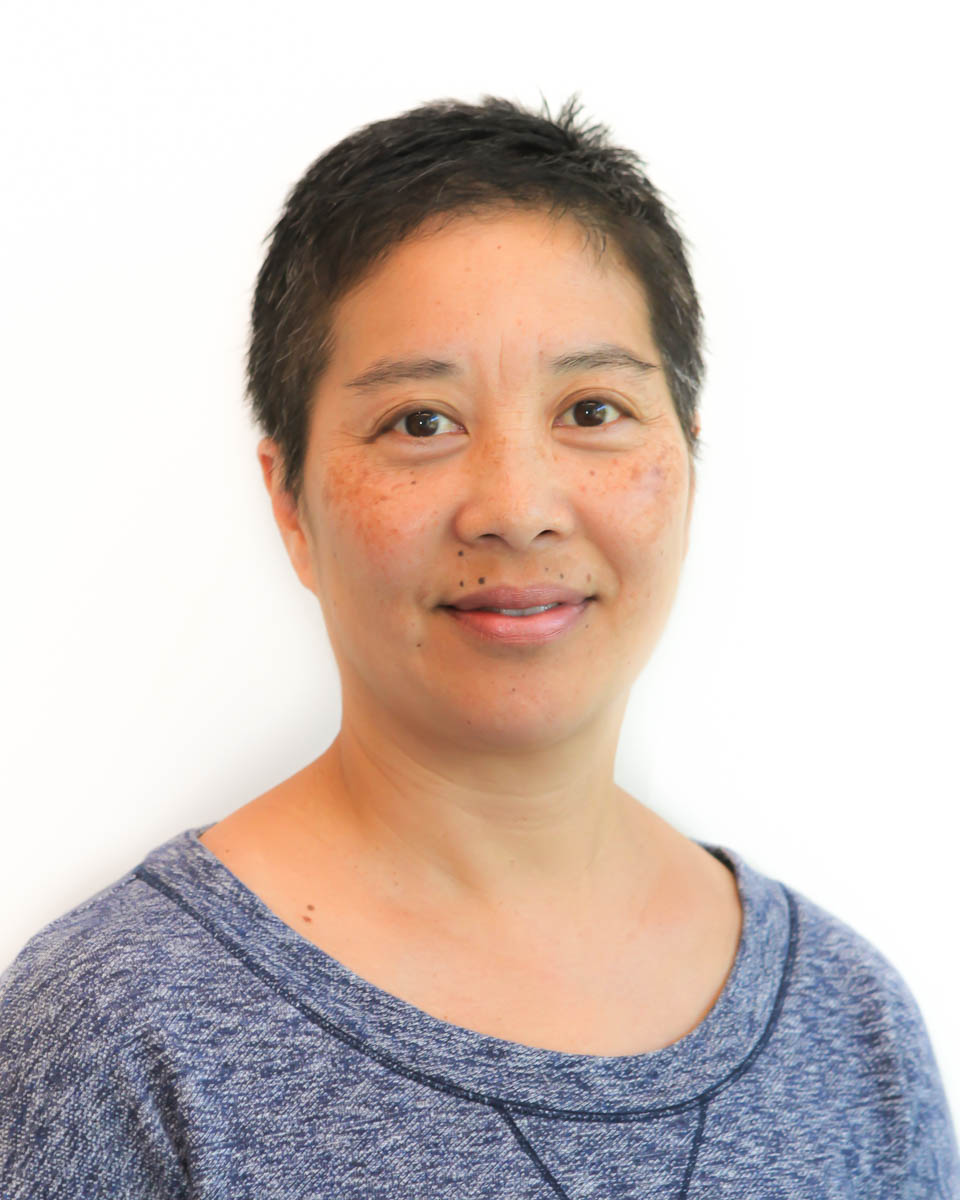
PATTI WALLACK: (Assistant to the Chair)
Like Tom, I also spend a lot of time talking to my dog. Unlike Tom, it is a REAL dog.
With laptop, VPN and Zoom, remote work is going smoothly. It has really been no problem. However, I miss the face-to-face interaction and hallway conversations with everyone. I am getting in some good long runs. It has also been quite nice seeing – from a six-foot distance – many neighbors who usually are never outside. So, in a weird way, this has been a social boost.
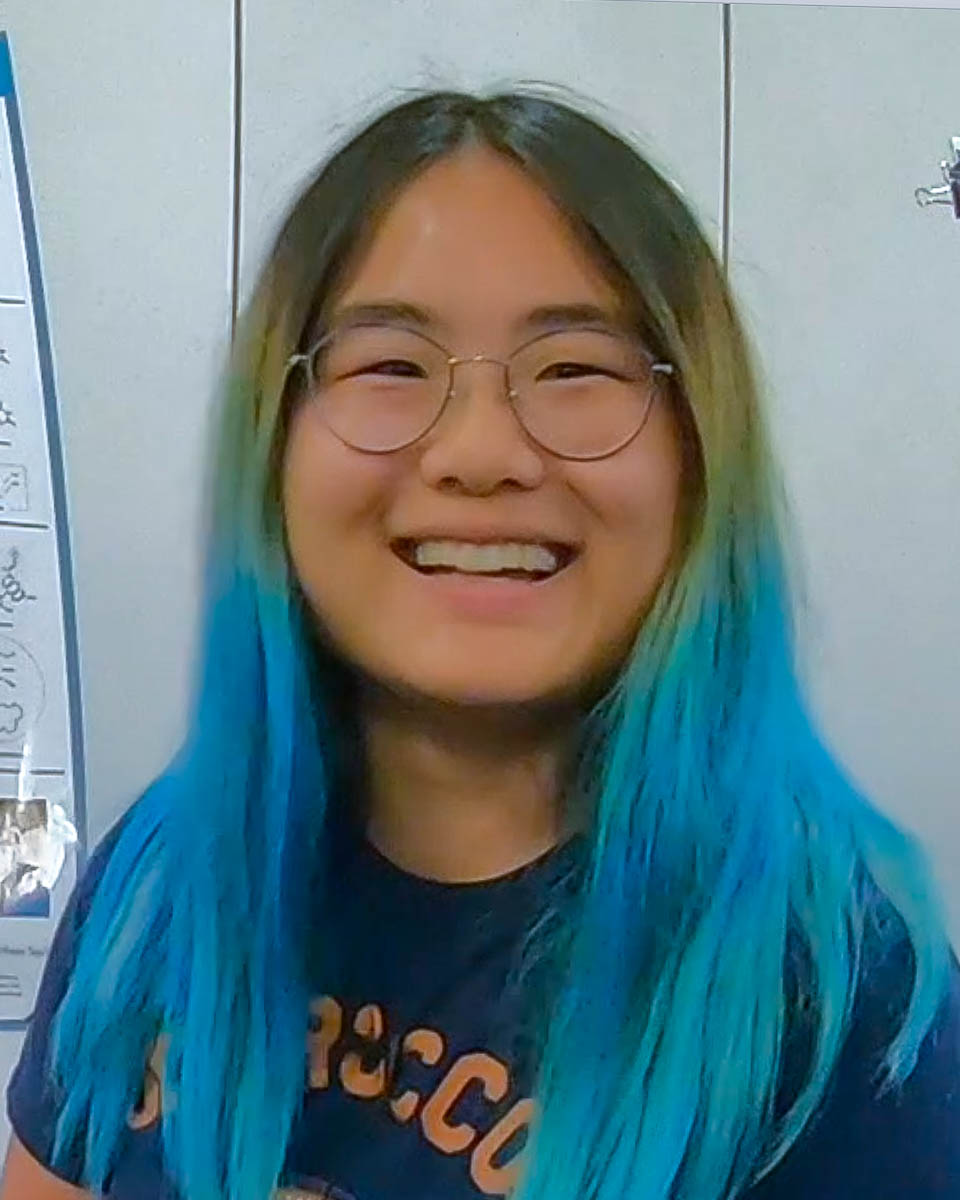
BERYL LI: (Graduate student, MacMillan Lab)
Since lab closure, we’ve been doing whatever we can at home, such as writing papers/proposals, working on job applications, or just simply reading. Everyone is at a different place in their work, so we are each doing the best we can for our individual projects. For me personally, it’s been working on addressing reviewer comments to the tyrosine manuscript, and studying up on basics of cell biology for the HaloTag project.
I’m doing fine mental health-wise, especially because I generally enjoy being at home, cooking, and playing with my cats. The biggest difficulty has been getting myself to focus on desk work at home and maintaining a relatively rigorous work schedule. One thing that’s become clear is that this is not an extended vacation. As the shelter-in-place goes on, routine and being productive may be the best things to keep us sane.
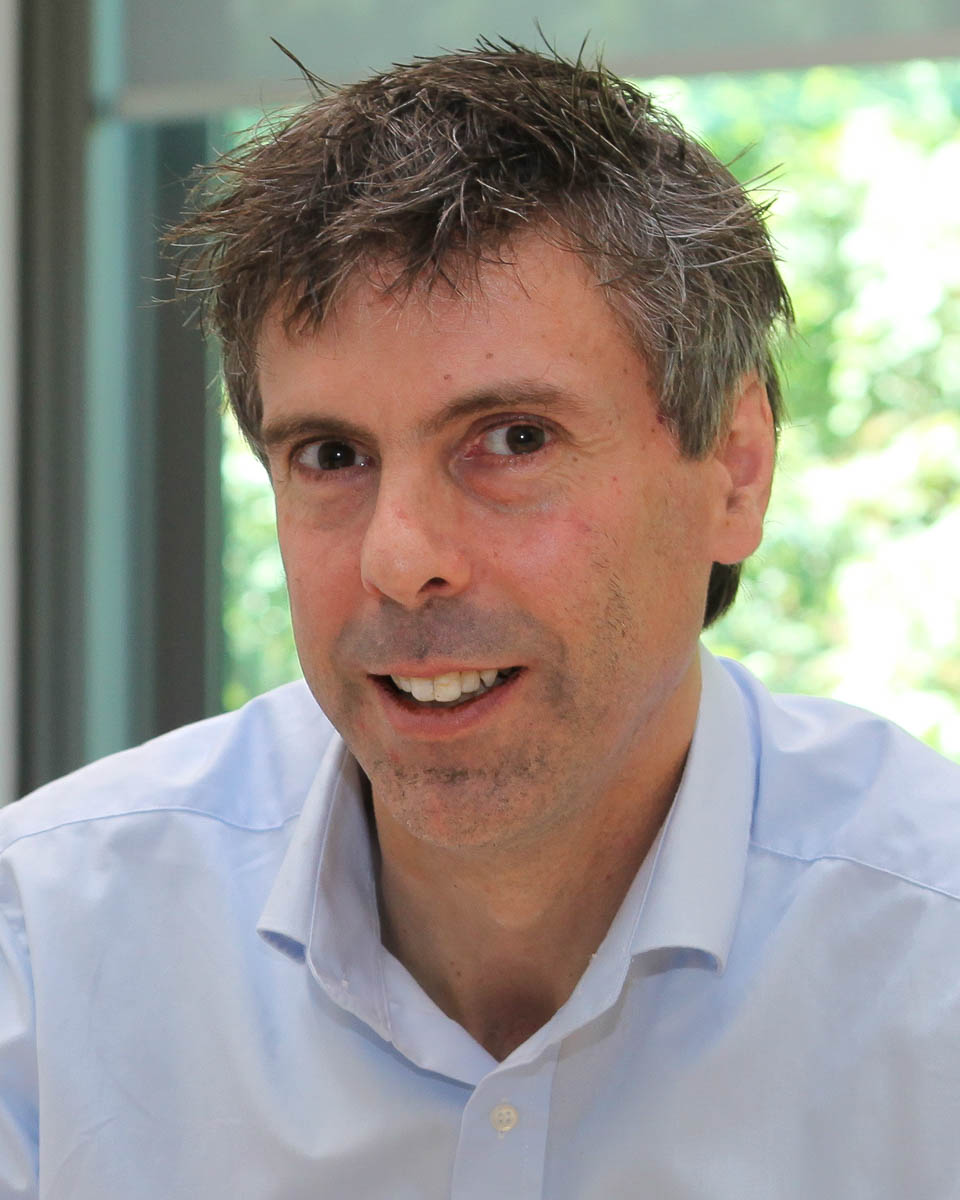
GREGORY SCHOLES: (William S. Tod Professor of Chemistry)
The big picture is, I encouraged my group to think of this is a sabbatical—use the quiet to think and write and work stuff out. I’m actually on sabbatical this semester anyway, so that’s what I’m doing. I get obsessed about solving problems and pushing the limits of what I understand. I’ve taken the time to write a paper that I’m working out the last puzzle for now. In parallel, I’m reading several math texts and papers in math outside my field to inspire new ideas. So, hole-ing up in my house and not talking to anyone is perfect.
For downtime I’m making a coffee table, a new pond, I cook most of the dinners, and of course home-schooling Beckett and Bronte some days each week. I’ve started teaching Beckett about the number line. It sounds very basic, but it is incredibly deep.
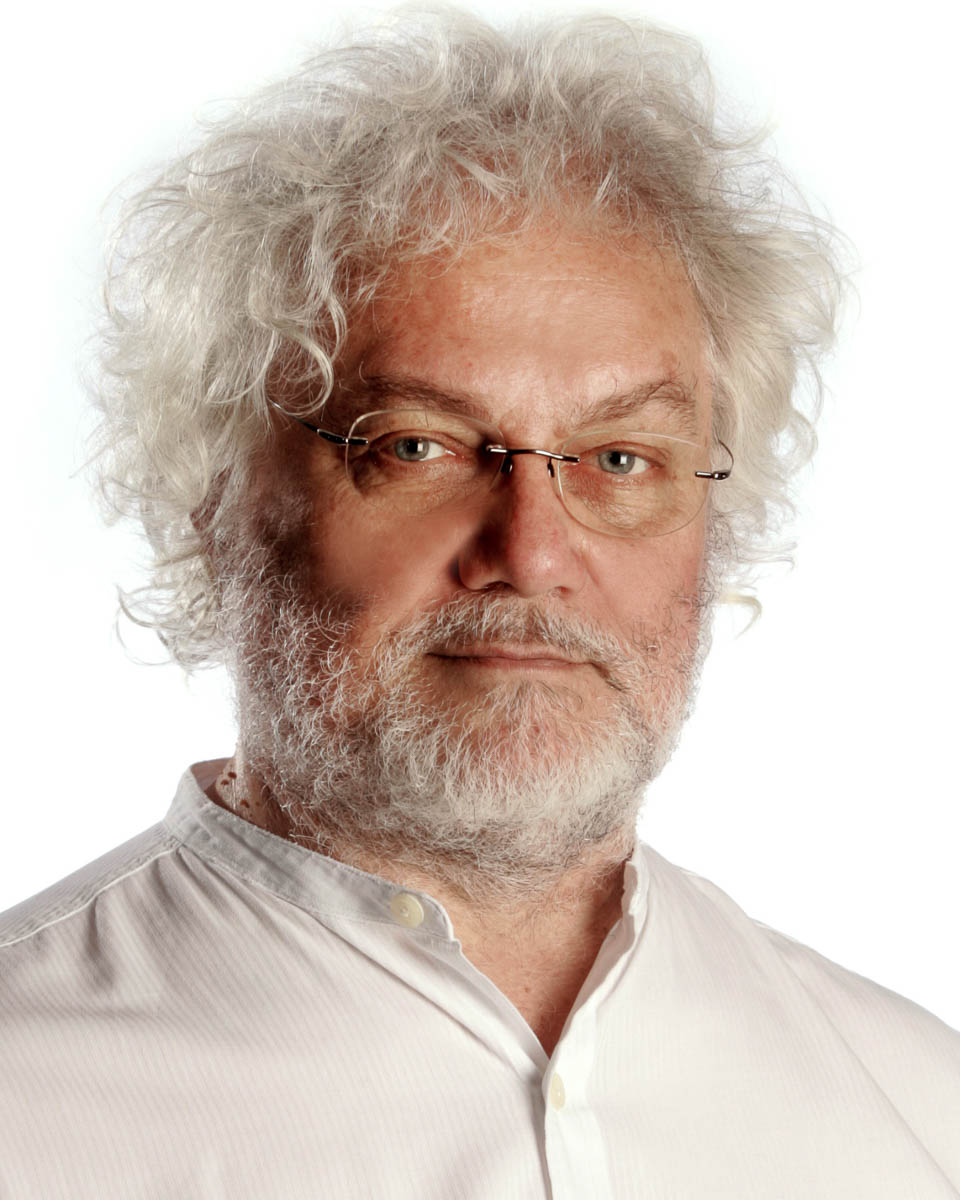
ISTVAN PELCZER: (Director, NMR Facility)
Regarding the NMR facility, the magnets are “living animals,” full of a lot of energy, at least as long as the liquid helium keeps the inside coil, immersed into it, superconductive. The inside container is surrounded with another one filled with liquid nitrogen to prevent extensive boil-off of the more expensive helium. The magnets can be “discharged,” taking their stored energy away gradually. However, this is a complex and expensive procedure leading to the loss of all helium inside. Therefore, we decided to keep the magnets “alive” in a standby mode.
As for how I’m doing, I am with family. We occasionally quarrel, but mostly help each other to survive the boredom. If the weather permits, we take walks in the neighborhood. Unfortunately, I am hanging on the news too much ….
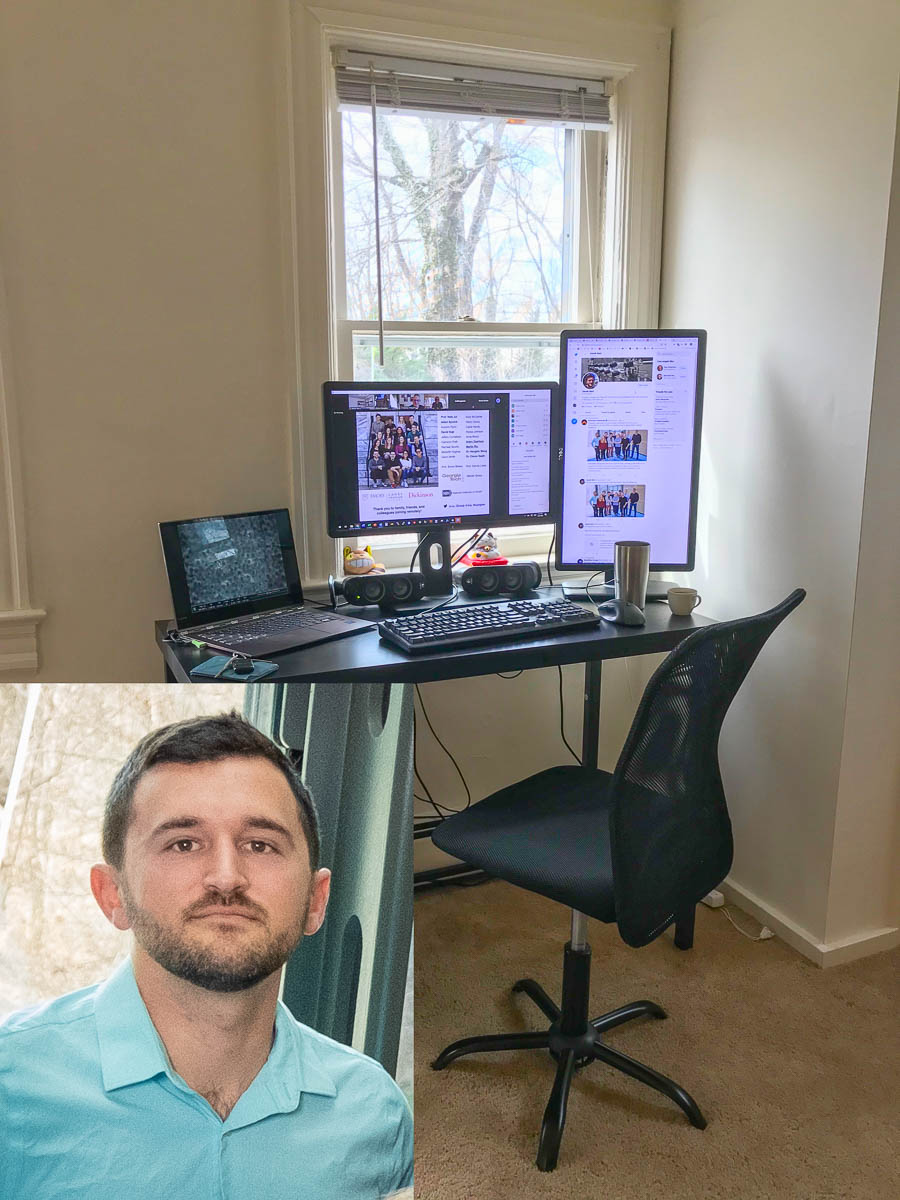
JACOB GERI: (Postdoctoral Fellow, MacMillan Lab)
Shutting down our lab was disorienting. So many projects we had invested months in had to be paused – cell lines frozen, experiments hastily wrapped up, questions left open. It came at a bad time, too, since we were really hitting our stride on a lot of follow-up projects built on our µMap technology. Despite these setbacks, some enforced time outside of the lab can also be a good thing. Now we have time to think deeply about proposals and learn new fields, so we can come back strong when this is all over. They say a day in the library can save a month in the lab. It will be interesting to see how much our work will improve after several months of reading and learning from home.
Personally, aside from rare trips to the lab to take care of essential maintenance tasks, I haven’t left home at all. But while holed up here, I’ve been able to spend more time with my husband. The virus has, by forcing us to step back the furious pace of professional life, provided us with an opportunity to enjoy the simple things in life.
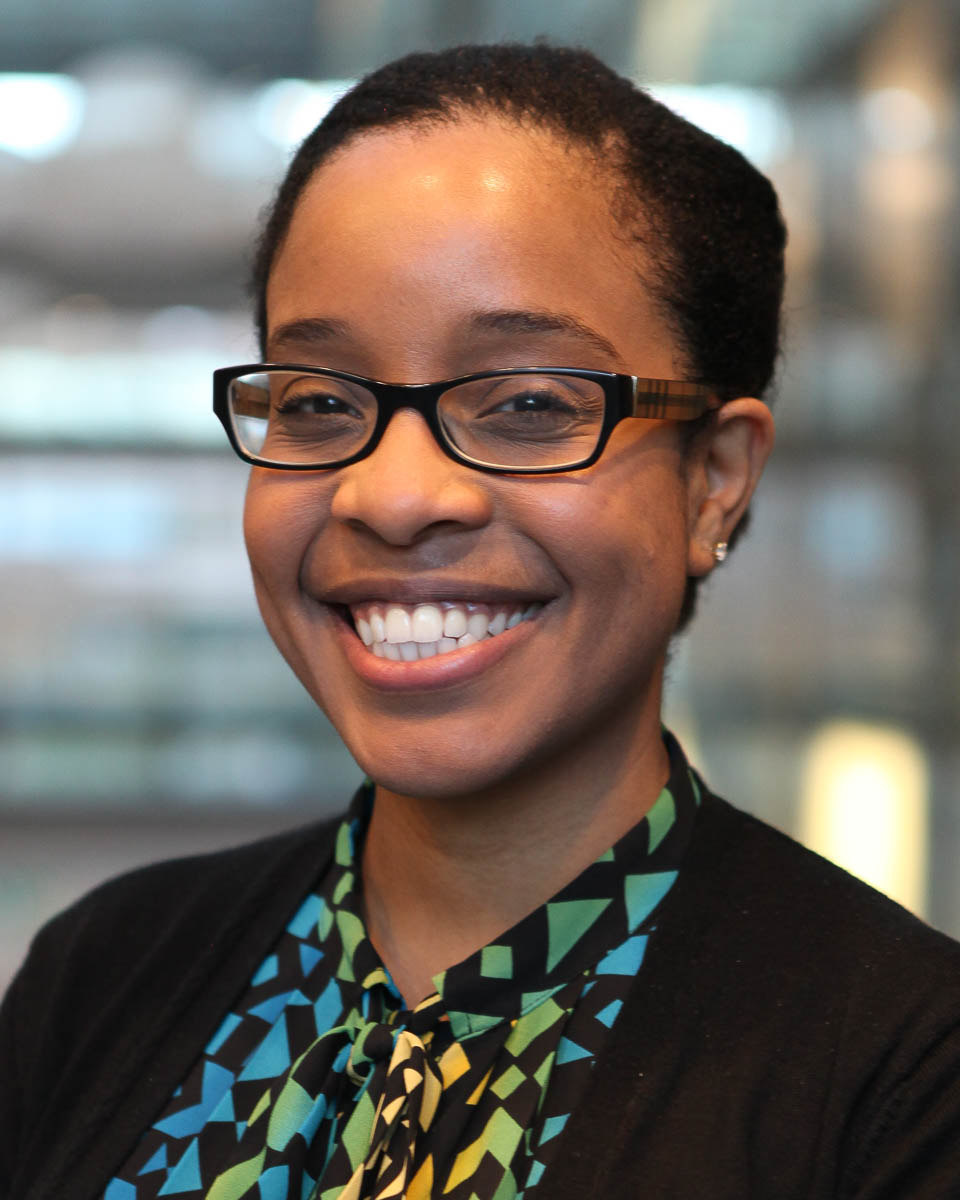
SONJA FRANCIS: (Lecturer in Chemistry)
It’s been tough, time-intensive, and a steep learning curve, but the McGraw Teaching Continuity site and their staff have been invaluable. Also, crowd-sourcing ideas from faculty within and without our department was helpful, too.
My coping strategies are limiting my exposure to newsfeeds and focusing on things to be grateful for: praying, running, and cooking traditional Trinidadian food. I spent the last two weeks building a LEGO Millennium Falcon. I also use Zoom to do at-home workouts with friends. I’ve been reading The Book of Delights by Ross Gay. It has been, in one word, delightful.
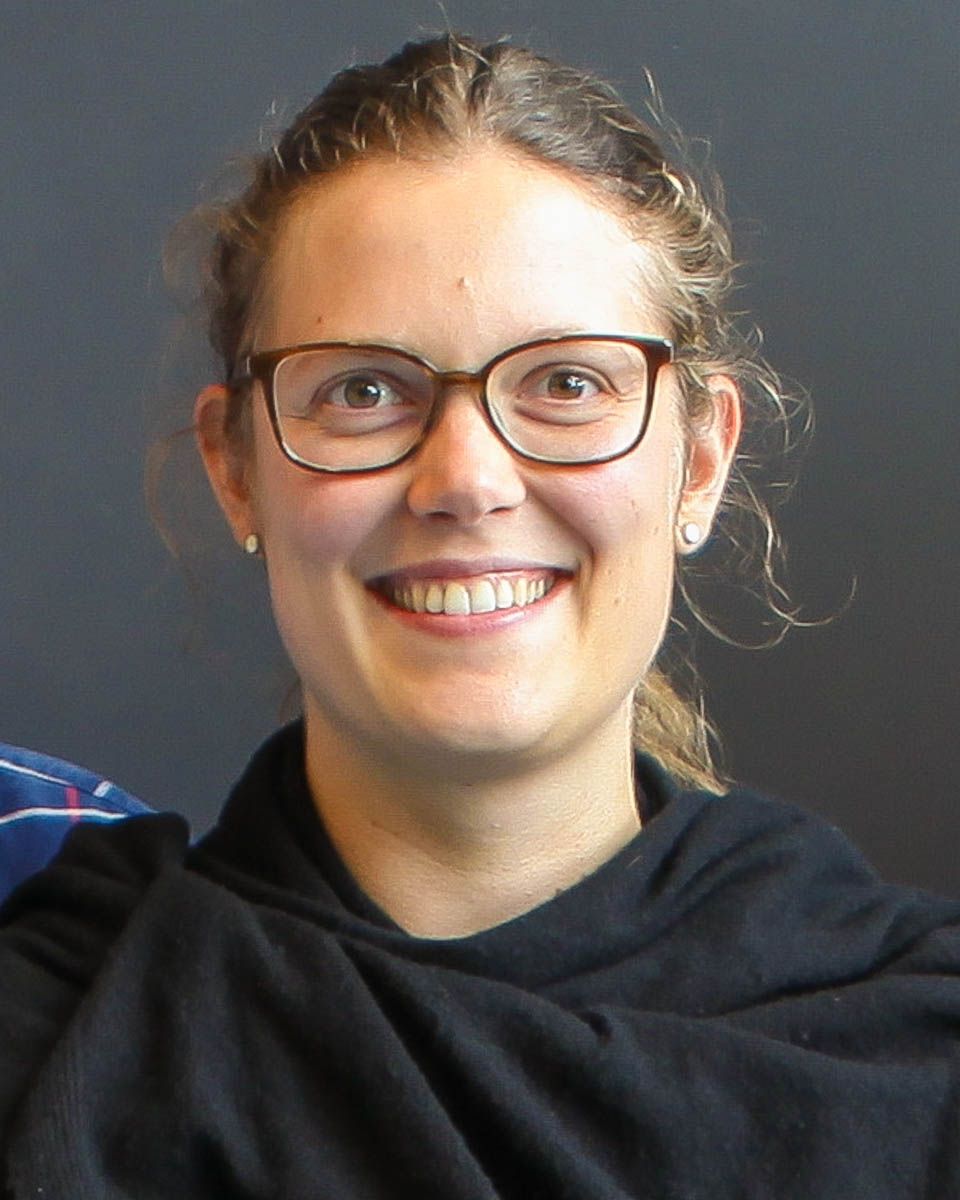
LESLIE SCHOOP: (Assistant Professor of Chemistry)
In my case, I think I am mostly doing okay. I’m teaching a computational course, so it works well. But it is hard to see if I lose students or not through Zoom. The personal communication gets lost. If I can see the students while teaching it is easier for me to know when I have to explain something in more detail. We are trying to write up as many papers as possible, or get them written to the point where we can we leave blanks for missing data.
What are my special coping strategies? I try to be there for anyone who needs me, either from my group or from my family or friends. It helps if you have the feeling that you can do something to help in this time.
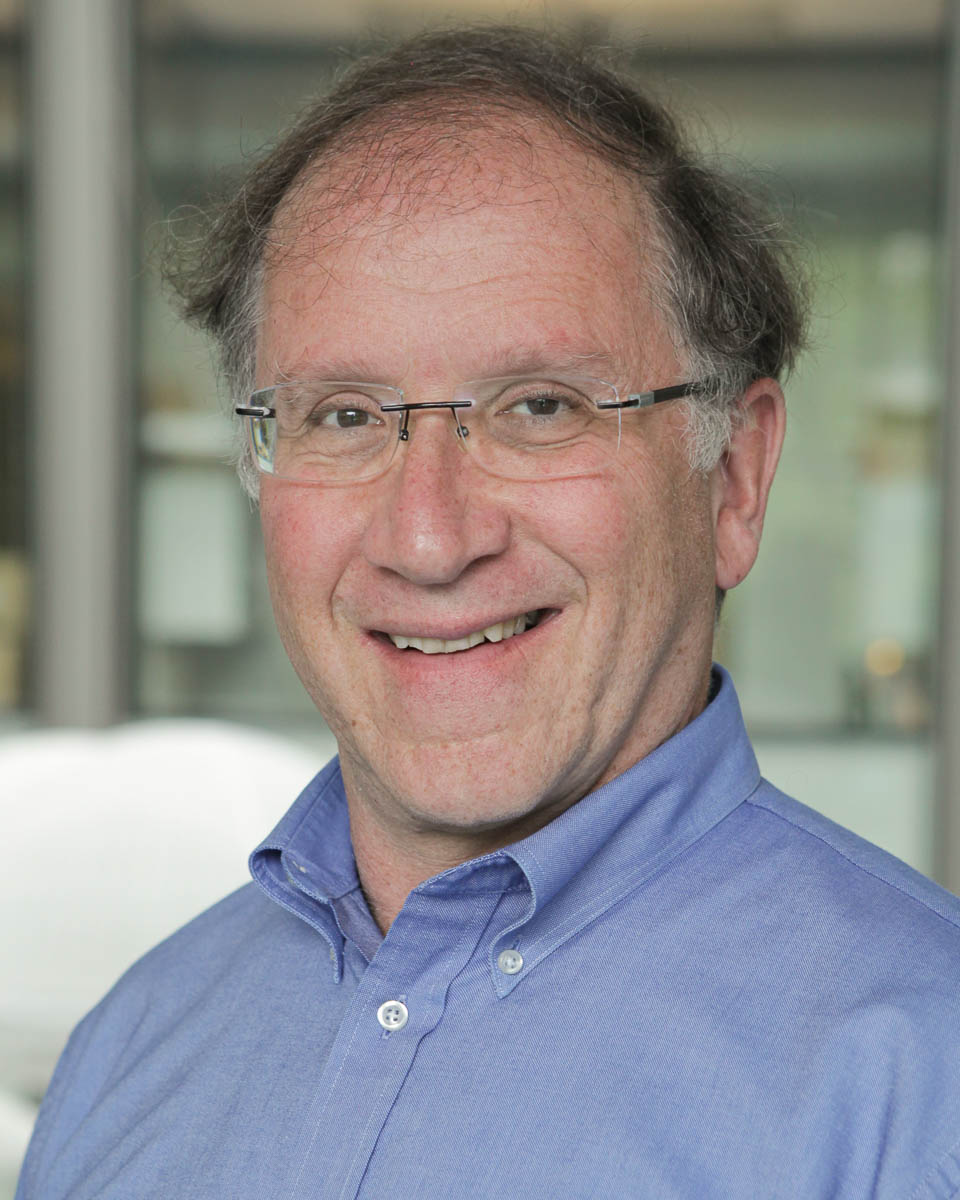
MICHAEL HECHT: (Professor of Chemistry)
I was really not looking forward to the online classes, because I’m an extrovert. So, the idea of interacting with a screen was not that interesting to me. But then we came online and there were 23 smiling faces from Princeton to Colorado to California to India, and it was actually quite lovely. The conversation did work. I couldn’t see people raising their hands, so I had to tell them, “I can’t see that – just wave across the screen.” It was much better than I expected. I’ve also decided that I’m not shaving until this is over.
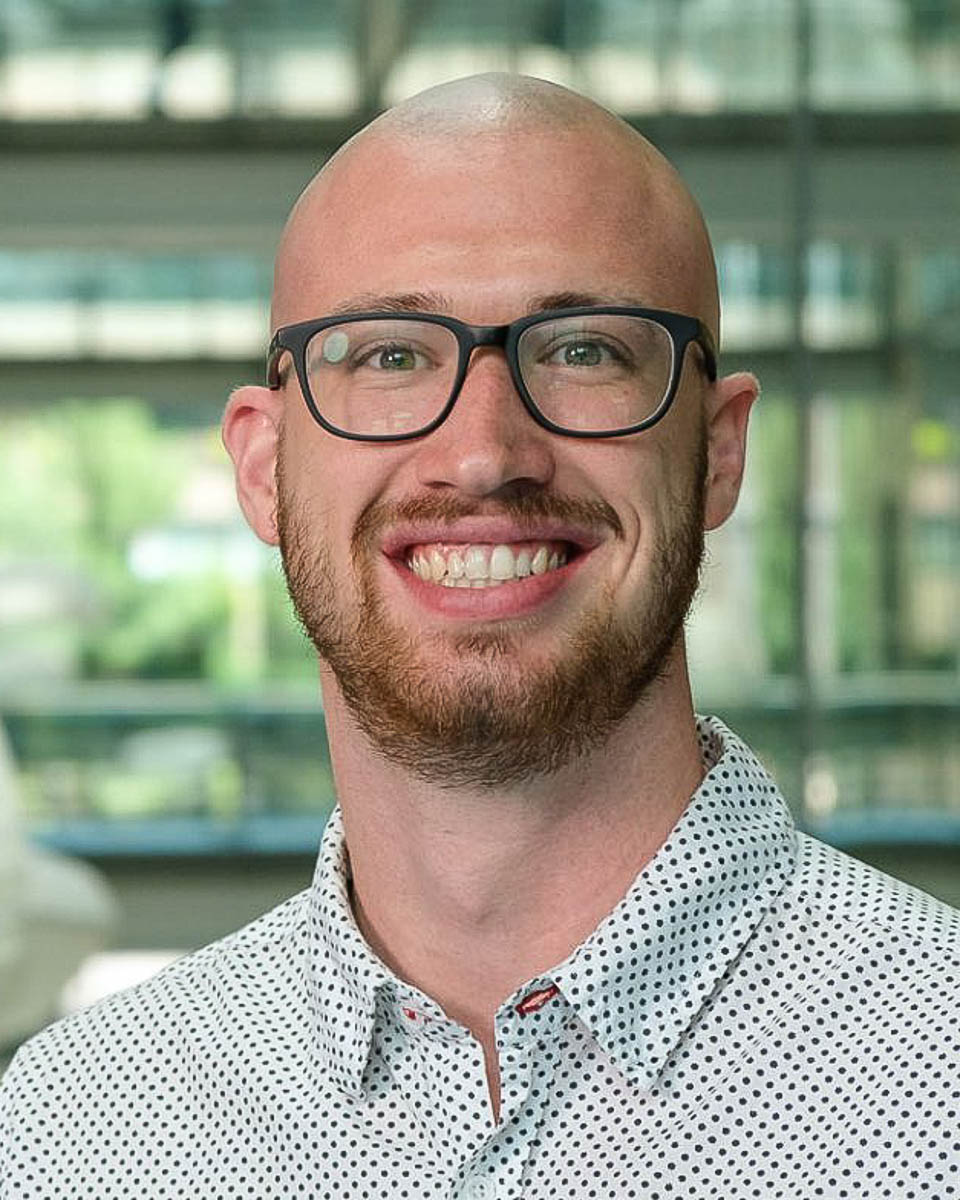
JAKE GANLEY: (Graduate student, Knowles lab)
The first couple days, I was able to do a lot of reading and planning and things like that. But you can only plan out so many experiments that you can’t go into the lab and actually run. I have a whole laundry list of experiments now that I want to try whenever we get back.
Then I sort of pivoted into broader things related to the Ph.D. endeavor. Our lab is writing a big Chemical Reviews article summarizing our lab’s research focus. And I pitched to my boss Rob [Knowles] to write a smaller perspective that looks like it’s going to end up being the intro for my thesis.
How am I coping? I used to come home from work and pop on an episode of Mad Men, but I’m not wound up at any point now that I need to unwind like that. For me, in the evening, I want to interact with other people, so I hang out with my roommate and we listen to music. I’m definitely very thankful that I have a roommate. If I was living by myself, that would be really hard. While the typical image of a scientist is someone who sits alone in a room in a lab coat, our job is super social. We’re a bunch of young people all packed into the lab working side by side, and we talk and joke a lot. So not having that has been definitely been a little weird.
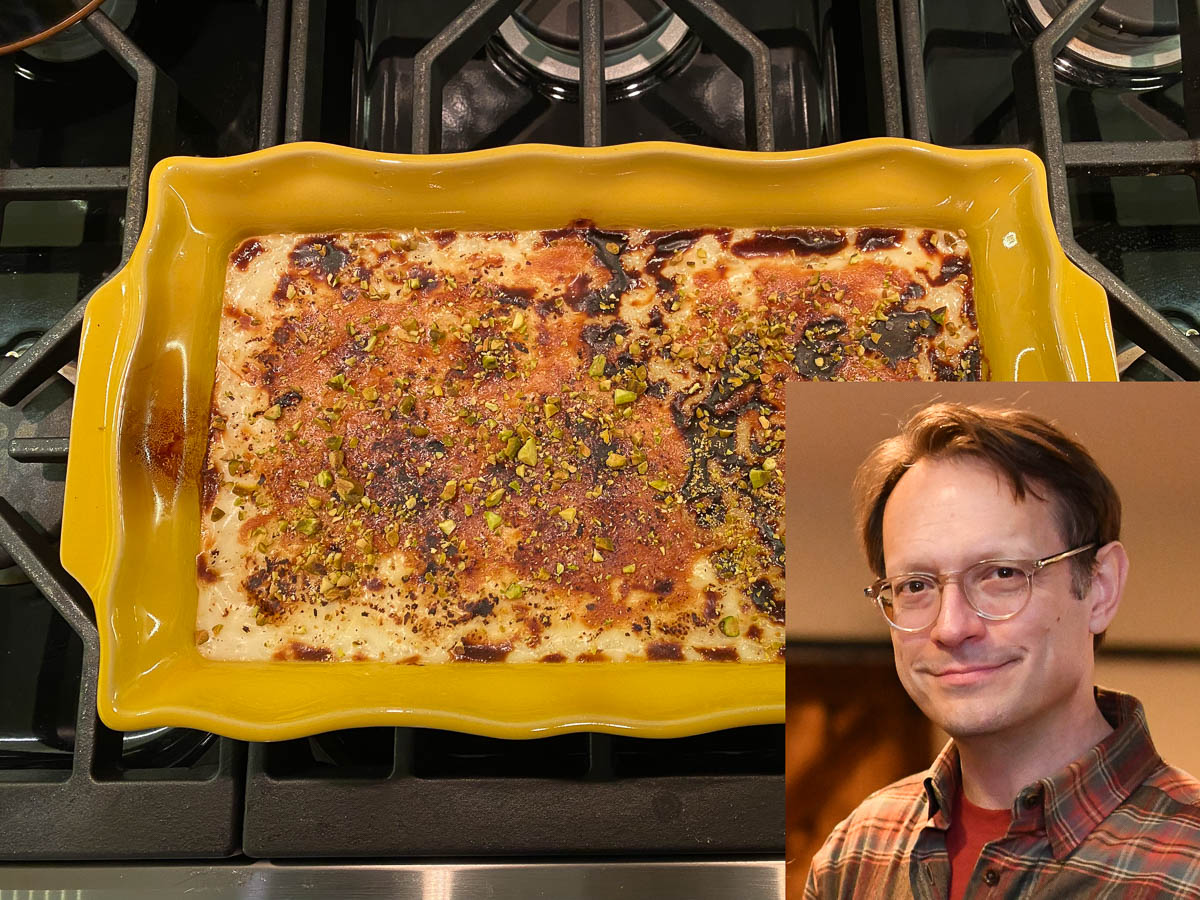
C. TODD REICHART: (Web & Media Specialist)
So many instructional YouTube videos, and NOW I’ve got the time! Who knew I had two jars of Trader Joe’s preserved lemons in the back of the pantry? Gone. The Chicken Tagine was delish. I am loving the peek into colleagues’ home offices, kitchens and basements – and pet cameos – courtesy of Zoom. My coping strategy? Doing an inevitably competitive, 15-minute, intense, indoor aerobic workout five mornings a week with Bonnie (Bassler, chair, Department of Molecular Biology). Later, indulging in fave home-made comfort food: baked rice pudding.
Photography by C. Todd Reichart, Frank Wojciechowski and Jacob Geri
